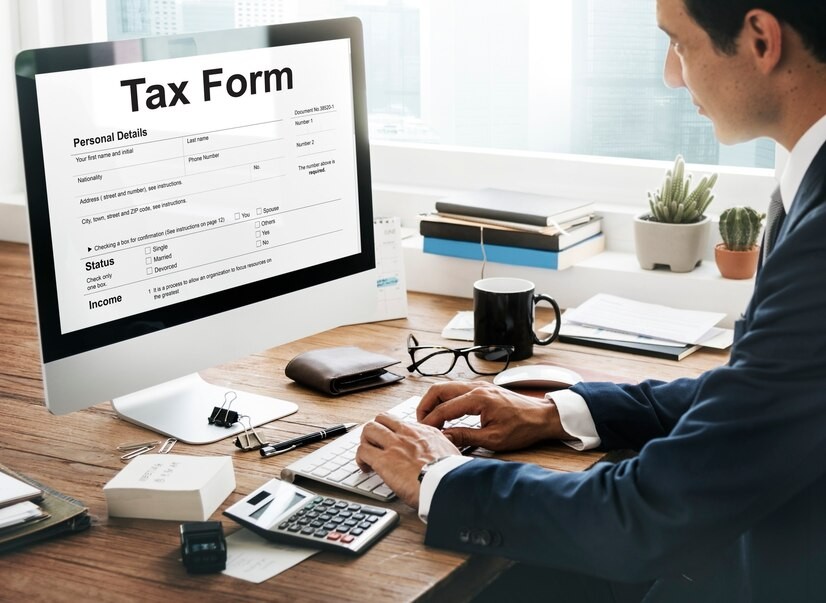Tax season can feel overwhelming, especially when financial records are scattered. For those handling self employed tax preparation in Queens, keeping paperwork in order is essential. The right organization can prevent mistakes, speed up filing, and maximize deductions.
Why Organizing Financial Documents Matters
Proper tax document organization:
- Reduces errors that could trigger audits.
- Ensures all deductions and credits are claimed.
- Saves time when filing taxes or working with an accountant.
A structured approach benefits both individual tax preparation and business owners filing self-employed taxes in Queens.
Step 1: Gather Essential Tax Documents
Start by collecting all necessary forms and receipts. Key documents include:
- Income Statements: W-2s (employees), 1099s (self-employed), or profit and loss statements.
- Expense Receipts: Business-related costs like office supplies, travel, and meals.
- Bank and Credit Card Statements: Proof of income and expenses.
- Investment and Loan Documents: Statements for stocks, rental properties, or mortgage interest.
Keeping these in one place prevents last-minute scrambling.
Step 2: Use Digital and Physical Filing Systems
An organized system helps track financial records throughout the year. Consider:
- Physical Folders: Label files for income, expenses, and deductions.
- Cloud Storage: Save digital copies using platforms like Google Drive or Dropbox.
- Accounting Software: Tools like QuickBooks or FreshBooks streamline self employed tax preparation in Queens.
Choose a system that works best to keep everything accessible and secure.
Step 3: Track Business and Personal Expenses Separately
Self-employed individuals must separate personal and business expenses. Best practices include:
- Using a dedicated business bank account for all transactions.
- Keeping detailed records of business-related purchases.
- Saving receipts and invoices for at least three years.
Accurate tracking ensures eligibility for deductions and prevents IRS issues.
Step 4: Categorize Deductible Expenses
Knowing what expenses qualify for tax deductions can lower taxable income. Common deductions include:
- Home Office Expenses: Rent, utilities, and internet costs for business use.
- Vehicle Expenses: Mileage, gas, and maintenance for work-related travel.
- Professional Services: Accountant fees for Queens individual tax preparation.
- Marketing and Advertising: Website costs, social media ads, and branding expenses.
Proper categorization simplifies tax filing and maximizes savings.
Step 5: Review and Update Financial Records Regularly
Waiting until tax season to organize documents creates stress. Instead:
- Set a monthly reminder to update records.
- Reconcile bank statements and receipts.
- Store tax-related documents in a secure place.
Consistent tracking keeps finances in order year-round.
Step 6: Work with a Tax Professional for Accuracy
Handling taxes alone can be overwhelming, especially with ever-changing tax laws. A tax professional ensures accuracy, prevents costly mistakes, and helps identify deductions that may go unnoticed. For Queens self employed tax preparation, expert guidance can reduce tax burdens while ensuring full compliance. Professionals also help with audits, filing extensions, and strategic tax planning.
Tree of Life Financial offers personalized assistance for both self-employed individuals and those needing individual tax preparation in Queens. Our expertise simplifies the process, saves time, and maximizes potential tax savings.
Final Thoughts
Staying organized with financial documents makes tax season stress-free. Whether managing Queens individual tax preparation or handling self-employed taxes, following these steps ensures smooth filing. With the right strategy and professional support, tax season becomes easier and more efficient.
FAQ 1: Why is it important to organize financial documents before filing taxes?
Organizing your documents minimizes errors that could trigger audits and ensures that you claim all eligible deductions and credits. This approach not only saves time during tax season but also simplifies working with a tax professional.
FAQ 2: What essential tax documents should I gather for filing?
You should collect income statements such as W-2s, 1099s, or profit and loss statements, along with expense receipts, bank and credit card statements, and any investment or loan documents. Keeping these records together helps avoid last-minute scrambling.
FAQ 3: How can I manage my records using both digital and physical filing systems?
You can use physical folders labeled for income, expenses, and deductions. In addition, saving digital copies on cloud storage platforms or using accounting software helps maintain accessible and secure records throughout the year.
FAQ 4: What are the benefits of separating business and personal expenses?
Keeping personal and business expenses separate ensures accuracy in your records. It allows you to claim all eligible deductions without confusion and minimizes the risk of IRS issues during tax preparation.
FAQ 5: How can a tax professional assist with tax preparation?
A tax professional can ensure accuracy, help identify eligible deductions, and guide you through changes in tax laws. For individuals handling self-employed tax preparation in Queens, expert advice reduces the burden of filing and minimizes potential tax liabilities.




